National approach to professional learning
Overview
The national approach was launched in 2018, creating a professional learning vision fit for the evolving education system in Wales.
Elements
The 8 elements that make up the national approach can be grouped by their context.
Consider how these different contexts define the priorities for professional learning:
- The national approach to professional learning - presentation pptx 1.32 Mb This file may not be accessible. If you need a more accessible version of this document please email digital@gov.wales. Please tell us the format you need. If you use assistive technology please tell us what this is
Funding
Funding arrangements to support the national approach are available.
The funding can be used flexibly to allow schools to work together in ways that suit their own circumstances.
Examples of how the funding can be used include (but are not limited to):
- releasing and covering staff to be involved in collaborative professional learning and collaborative planning – at a school level, and across clusters and networks
- incentivising and rewarding staff to investigate the implications of the new curriculum for their own teaching and assessment practice – at individual level, by funded release for critical enquiry
- creating roles and posts dedicated to the mission, and especially to supporting colleagues, departments and whole schools through critical enquiry, change management and schools as learning organisations (SLO) activities.
- development of the role of school or cluster level professional learning coach – this is one of the key findings of the research activity by the universities in looking at the national approach to professional learning, and an area in which we would encourage investment.
School case studies - use of the additional professional learning grant
-
Llanhari Primary
Llanhari Primary used the professional learning grant to develop a multi-layered approach to professional learning. The grant supported release time for staff to engage in monitoring and evaluation activities to improve classroom practice. To develop a research driven culture across the schools, the funding also provided opportunities for staff to collaborate internally and externally to develop their action enquiry skills, including a cluster peer enquiry project. Collaboration with a range of external partners has led to a culture of sharing and openness, which the school will continue to build upon to successfully realise the new curriculum.
Albany Primary
Albany Primary used the additional professional learning (PL) grant to fund a bespoke school professional development programme that focused on PL and educative mentoring, supported by Cardiff University. The funding gave staff exposure to university research methodology and supporting documentation, and gave them the confidence to analyse their chosen area within their own school setting. INSET and twilight sessions were used for group discussions, to share and interrogate the work completed to date. Membership of the groups were rotated to encourage a variety of opinions to enhance the quality of professional dialogue and research.
The research programme with Cardiff University has resulted in a much greater emphasis on reflection and opportunities for professional dialogue in professional learning activities at Albany Primary. The school INSET diary now has a significant number of twilight sessions based around reflection and professional dialogue of school priority areas.
St. Andrew’s Primary School
St. Andrew’s primary school used their additional professional learning grant funding to support leaders, middle leaders and teachers to engage with the Excellence in teaching and Leadership Programme offered by the regional consortia in collaboration with regional professional learning schools. The positive impact this had was that it increased confidence, monitoring and engagement in professional dialogue. Teaching staff engaged with the standards. Funding helped staff to visit other settings and undertake whole-school and collaborative research which has led to whole-school change in developing a new curriculum and reform.
Ysgol yr Hafod
Ysgol yr Hafod used their additional professional learning grant funding to create ‘time and space’ for staff to work together on projects to support the new curriculum. The school was also keen to build a team of reflective practitioners, who were confident in engaging in action research. Staff had opportunities to lead their own learning, including cross-phase working. The school has established a culture of collaboration. Staff are gaining confidence in trying new approaches and reflecting on the impact on learners. Coaching and mentoring supported colleagues and provided encouragement when tackling challenges along the way.
Blackwood Primary School
Blackwood Primary School used their additional professional learning grant funding to further develop their capacity to adapt to the new curriculum through high quality leadership and collective learning.
They used the grant funding not only to further develop the Deputy Headteacher but also to develop a professional learning framework; with all staff being involved in leadership development activities supported by the regional consortia, to ensure that they were aware of the new professional standards for teaching and leadership. They used schools as learning organisations dimensions and the Excellence in Teaching Programme to build leadership skills at an appropriate level for personal development.
Ysgol Cae’r Nant
Ysgol Cae’r Nant used their additional professional learning grant funding to prepare for the new curriculum by investing in the Mantle of the Expert (MoE) approach to make learning more meaningful and exciting.
They utilised the grant to train both teaching and non-teaching staff in the MoE approach and to release staff to visit other MoE training schools. Staff were particularly keen to develop in this area, as they immediately saw the impact on their classroom practice and their learners. Ysgol Cae’r Nant shared the training and their experiences more widely, so other schools could discover this new pedagogy.
Ysgol Cae’r Nant has successfully gained Mantle of the Expert training school status and continues to develop additional staff members as MoE teachers. They are also continuing to share good practice with other schools by hosting regular open day events.
Broughton Primary School
Broughton Primary school used the additional professional learning grant to identify whole-school priorities and professional learning needs. The funding was used to facilitate professional development courses for all staff, to support them in embedding the schools core strategies.
The funding was also used to identify and appoint a number of leadership roles, to support the school priorities and to coordinate professional learning activities across the school. Further to this, the school has used the funding to access specialised professional learning opportunities, led by experts, for teachers, learners and parents/carers.
Langstone Primary School
Langstone Primary School used their additional professional learning grant to fund a number of initiatives to support professional learning across the school, including developing a research lead, working with external training providers, developing cluster working and developing mathematics teaching across the school.
They had a multi-faceted approach in developing the Senior Leadership Team across the school that will support the introduction and development of Curriculum for Wales.
Ysgol Bro Lleu
Ysgol Bro Lleu used its additional professional learning grant to prepare for the new curriculum, by fostering the ethos of schools as learning organisations to be more inclusive for staff.
The school used its grant for specific training by the consortium and to give staff dedicated time for reflection and mutual thinking on how to develop themselves, others, and the school. The projects have had an impact beyond Ysgol Bro Lleu, fostering a collaborative ethos across the catchment area, including secondary schools.
The school and the catchment area feel confident and enthusiastic to begin planning for the future and for the new curriculum.
Ysgol Tregarth
Ysgol Tregarth used the additional grant to develop professional learning at all levels within the staffing structure.
The school is fully committed to developing as a learning organisation. The grant has been an effective way of focussing on elements that have been identified as areas for development following the Welsh Government 'Schools as learning organisations’ survey.
The school used its grant to establish a culture of investigation; to develop ways of collaborating as a team amongst staff and to support continuous professional learning for all staff. According to the school this way of working has been highly effective with a positive impact on learning and teaching.
Moving forward, the school is developing further opportunities for professional learning in a research-led culture.
Ysgol Ty Coch
Ysgol Ty Coch used the additional professional learning grant to facilitate self-evaluation and school improvement planning. The school used the baseline results from their initial schools as learning organisations survey to help develop an understanding of the school’s strengths and areas for improvement. The school then identified school improvement priorities and used the grant to facilitate a number of activities such as increasing resilience within staff, creating time for staff to engage with enquiry-based practice and developing a Curriculum Planning Forum. Through their commitment to professional learning, the school have seen a positive impact on both staff and learners.
-
Ysgol Aberconwy
Ysgol Aberconwy used the professional learning grant to fund initiatives to develop research techniques, pedagogy and coaching skills, within the school and across their cluster. Funding has supported staff release time and training in research techniques. The grant was also used to develop relationships with other schools in their cluster and collaborate to form policy and practice to improve standards. Ysgol Aberconwy have developed their professional learning package alongside their primary cluster schools. As a Teacher Effectiveness Enhancement programme (TEEP) training school, staff have trained all primary clusters in TEEP. This has provided a common language for learning and teaching across the cluster. The school is committed to continuing to learn with cluster partners through research and shared experience and training.
Ysgol y Preseli
Ysgol y Preseli used the additional professional learning grant to study the pedagogical continuum in Humanities across Key Stages 2 and 3. The aim of the study was to prepare teachers for the new curriculum and to raise awareness amongst stakeholders of the forthcoming changes. There were numerous opportunities for teachers to develop professionally through working together, enriching understanding of pedagogy and the continuum required to ensure that learners take ownership of their progress. These teachers continue to lead the way for the rest of the school staff and cluster schools.
Cwmtawe Community School
Cwmtawe Community School used the additional professional learning grant to benefit the whole school, facilitating a number of projects to develop their staff at all stages in their careers. The grant offered the opportunity for staff to engage with job-shadowing roles, being mentored by a senior coach throughout, allowing staff to gain wider whole-school or departmental responsibility and experience. All staff are given access to accredited training programmes to further their professional development.
The school has begun developing a whole-school coaching strategy and ethos which they will continue to build on while promoting working across areas of learning and experience when planning for the new curriculum.
Dwr-y-Felin
Dwr-y-Felin Comprehensive School used the additional professional learning (PL) grant to implement the professional learning school model. The funding was used to facilitate a number of opportunities such as training on the professional standards for teaching and leadership, access to leadership programmes for staff, engagement with schools as learning organisations professional learning and attending training programmes on new additional learning needs (ALN) arrangements.
The school has also undertaken a number of projects which have resulted in an increase in staff engagement with PL and positive impacts on their learners’ independent, cross-curricular learning.
Bishop Hedley Catholic High
Bishop Hedley used the additional professional learning (PL) grant to fund the implementation and training of Google for Educators software throughout the school. The funding gave the school the opportunity to train 20 members of staff. The trainees soon became the trainers, passing on their knowledge and skills to colleagues and learners within the school.
Each teacher created a virtual google classroom for every class they taught and were able to create and mark assignments electronically with feedback given and recorded instantly. A parental contact facility was also included that notified parents/carers via e-mail when a homework assignment was given, improving the engagement between school and parents/carers.
The Google for Educators implementation enabled staff to work smarter, more efficiently and had a genuine positive impact on learning and teaching. It enabled the effective and secure flow of data between departments that resulted in faster decision making across all areas of school life. It also assisted in preparing staff to address elements of the new curriculum, specifically the Digital Competence Framework and various dimensions of the four purposes.
Ysgol Gymraeg Bro Morgannwg
Bro Morgannwg used the additional Professional Learning (PL) grant to fund a number of projects such as the delivery of an INSET training day on growth mindset.
It also enabled staff to collapse the normal timetable to work on cross-departmental projects and visit schools in Iceland and Sweden to learn about their curriculum continuity.
The funding gave the school the opportunity to create Welsh Language material and enable staff to work in triad groups to develop and evaluate the growth mindset theory in the classroom. It also provided opportunities to work outside of the classroom on whole-school projects with learners and cluster schools that increased staff confidence in their preparation for the new curriculum. The invaluable experience gained by visiting schools in Iceland and Sweden was used to inform Bro Morgannwg’s curriculum and spending plans.
Broadening the learner experience is an essential element of the new curriculum and is one area that Bro Morgannwg will develop further in future. Staff intend to work in Areas of Learning and Experience (AoLE) groups to develop and trial new approaches to learning and teaching in their preparation for implementing the new curriculum.
King Henry VIII
King Henry VIII used the additional professional learning (PL) grant to fund a number of projects to develop staff understanding of the new requirements around learning, teaching and assessment in the new curriculum. The school created a new vision, school cluster collaboration was encouraged, and leadership and mentoring introduced with an emphasis on future leaders. Engagement in health and well-being on a school, local authority and regional basis promoted learner well-being across the school community.
The additional funding gave the school the time and opportunity for teachers and teaching assistants to work together to focus on action enquiry to evaluate and improve pedagogical aspects of the areas of learning and experience. Working with other schools and external experts was also beneficial in making the links between the well-being/Adverse Children Experiences agenda and the pedagogy of their subject discipline in the classroom. This new way of working increased staff confidence and enjoyment in their roles.
Strong strategic planning and communication is crucial in preparing learners and teachers for the implementation of the new curriculum. Staff at King Henry VIII intend to continue their Peer Enquiry Cycle work, engageing with the Abergavenny cluster and national projects to develop and trial new approaches to learning and teaching using the INSET allocation and funding from the additional PL grant.
St Joseph’s High School
St Joseph’s High School used their additional professional learning funding in a number of ways to support all teachers and staff and raise awareness of Education in Wales: Our national mission. The additional grant also improved continuous professional learning, work with other schools and cluster schools, and helped to develop a whole-school approach to recall, modelling, feedback and oracy. The positive impact this had has led to improved outcomes for learners and ensured that staff have a personal career pathway. Funding also helped staff to work collaboratively and improve attitude to development.
Stanwell School
Stanwell School used the professional learning (PL) grant to further develop the school’s internal Continuing Professional Development (CPD) programme. The programme, written by senior leaders, aims to address the specific needs of the school in relation to their response to Education in Wales: Our national mission, schools as learning organisation (SLO), effective change management, enquiry, professional practice and pedagogy whilst also further developing a coaching culture within the school.
Using resources such as Rosenshine’s Principles of Instruction, the school saw significant improvements in understanding the value of PL for staff, which filtered through to the learners, who have been at the centre of all enquiry projects.
-
Trinity Fields
Trinity Fields used the professional learning grant to nurture a culture of innovation, experimentation and collaboration in their school. Enhanced professional learning funding supported a wealth of informal and formal development opportunities for all staff, including support staff. This included working across the cluster to support significant changes in light of the Curriculum for Wales guidance and the Additional Learning Needs and Education Tribunal (Wales) Act. The grant also enabled a renewed focus on emerging leaders, equipping them skills for their future career pathways. Additional investment in teaching assistants as a coherent professional group has also further developed their important role at the school.
Resources
- High level summary of the national approach pdf 32 Kb This file may not be accessible. If you need a more accessible version of this document please email digital@gov.wales. Please tell us the format you need. If you use assistive technology please tell us what this is
- 8 interconnected elements of the national approach pdf 32 Kb This file may not be accessible. If you need a more accessible version of this document please email digital@gov.wales. Please tell us the format you need. If you use assistive technology please tell us what this is
Listen to a podcast on the national approach to explore some elements in more detail.
A range of research has been undertaken to provide the evidence base for the elements of the national approach and to ensure coherence.
Consider the following research commissioned to inform the development of the national approach.
Interactive tool
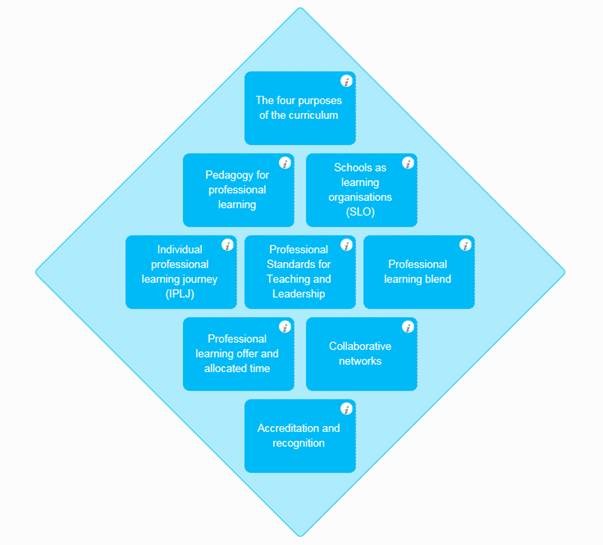
Schools can access the Professional Learning Diamond 9 Tool to identify professional learning priorities. The Diamond 9 can be downloaded to share with school staff and/or cluster partners. Schools may wish to repeat the Diamond 9 exercise, to reflect changing professional learning priorities.
To access this you must be logged into Hwb
School-to-school support
Through early engagement with the draft curriculum, pioneer schools have considered immediate professional learning implications.
Reflect on the experiences of professional learning pioneers to consider how professional learning is evolving to help practitioners bring the new curriculum to life.
Wider support
Wider professional learning support will also be available to schools.
Ruth Thackray from the GWE consortium talks about the consortia role.
Dave Stacey from Yr Athrofa: Institute of Education, University of Wales Trinity St. David, considers the role of higher education institutions (HEIs).
Consortia contacts

Website: | |
Professional learning link: | |
Professional learning lead: | Louise Muteham Natalie Gould |
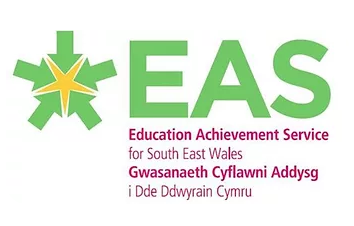
Website: | |
Professional learning link: | https://sites.google.com/hwbcymru.net/eassupportingourschools/home |
Professional learning lead: | Deb Woodward |
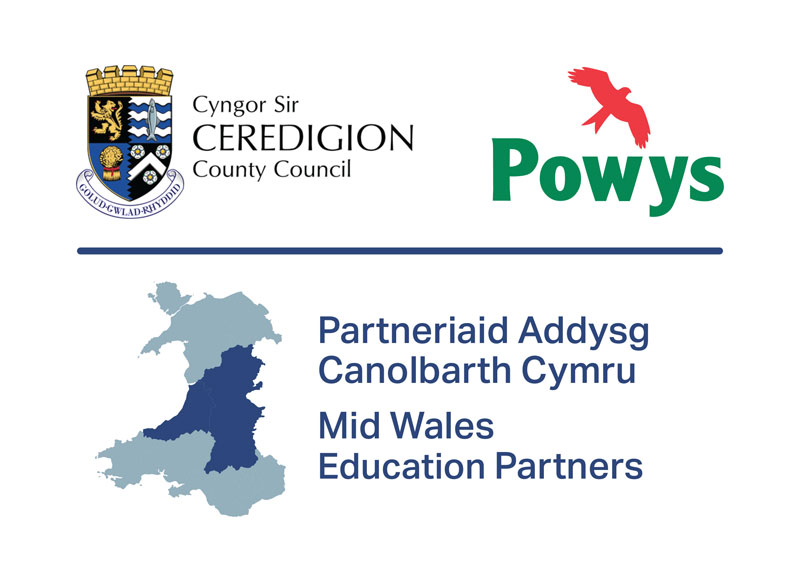
Professional learning link: | Powys: https://sites.google.com/hwbcymru.net/adnoddau-powys-resources/home/curriculum-for-wales |
Professional learning link: | Ceredigion: https://sites.google.com/hwbcymru.net/cyrsiau-datblygiad-proffesiyno/hafan/cwricwlwm-i-gymru |
Professional learning lead: | Sally Llewellyn |
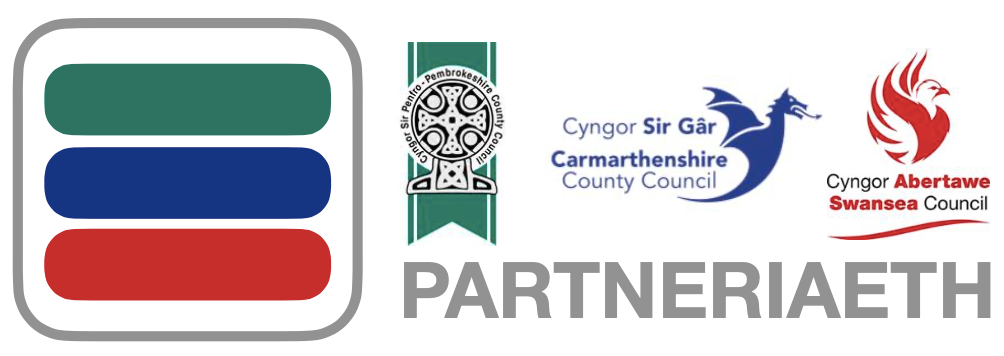
Website: | |
Professional learning link: | https://www.partneriaeth.cymru/en/collection/dysgu-proffesiynol-rhaglenni-cenedlaethol |
Professional learning lead: | Debbie Moon (Debbie.moon@partneriaeth.cymru) Jenna Gravelle (gravellej7@hwbcymru.net) |
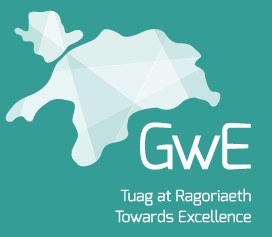
Website: | |
Professional learning link: | https://www.gwegogledd.cymru/index.php/professional-learning/?lang=en |
Professional learning lead: | Ruth Thackray |


